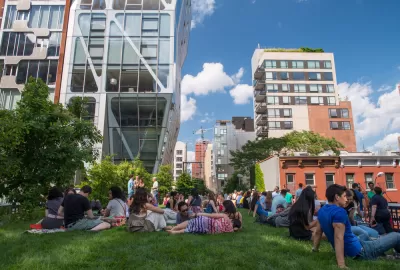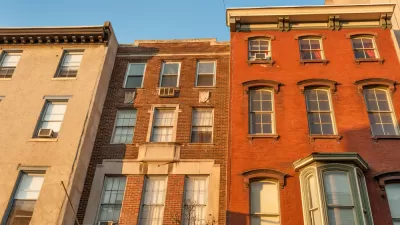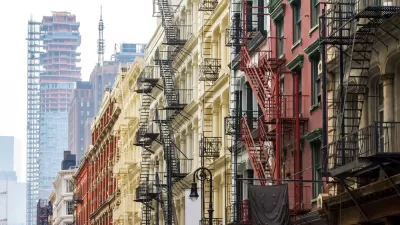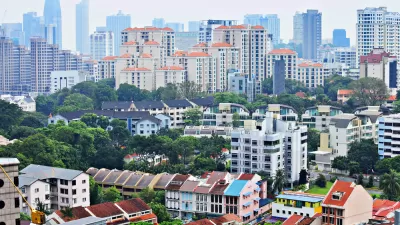The public health and economic crises caused by the coronavirus are threatening to further entrench inequality in America—between regions and within cities.

According to Clara Hendrickson and Mark Muro, "the pandemic might intensify the unevenness of America’s divergent economy, with disturbing implications."
Because the coronavirus first spread through affluent urban centers—San Francisco, Seattle, and New York City—some have wondered whether the pandemic would bring about a more geographically balanced economy by inspiring white collar workers will move in droves to less expensive parts of the country that could badly use the economic boost. "Don't bet on it," write Hendrickson and Muro. "Despite the increasing adoption of digital technology in American workplaces, economic activity has become more—not less—concentrated," according to the duo. As for why:
...while the density of large cities may be a disadvantage in fighting the spread of the coronavirus, it likely will remain an advantage in a 21st century knowledge economy, where the biggest places with the richest exchanges of ideas among highly educated workers have enjoyed the greatest economic returns.
The article also examines the pandemic's unequal consequences within cities (i.e., not just the inequality between cities and regions)—as neighborhoods in some of these cities, filled by blue collar workers keeping the economy afloat while bearing the brunt of the public health consequences of the pandemic.
FULL STORY: Will COVID-19 rebalance America’s uneven economic geography? Don’t bet on it.

Planetizen Federal Action Tracker
A weekly monitor of how Trump’s orders and actions are impacting planners and planning in America.

San Francisco's School District Spent $105M To Build Affordable Housing for Teachers — And That's Just the Beginning
SFUSD joins a growing list of school districts using their land holdings to address housing affordability challenges faced by their own employees.

The Tiny, Adorable $7,000 Car Turning Japan Onto EVs
The single seat Mibot charges from a regular plug as quickly as an iPad, and is about half the price of an average EV.

As Trump Phases Out FEMA, Is It Time to Flee the Floodplains?
With less federal funding available for disaster relief efforts, the need to relocate at-risk communities is more urgent than ever.

With Protected Lanes, 460% More People Commute by Bike
For those needing more ammo, more data proving what we already knew is here.

In More Metros Than You’d Think, Suburbs are Now More Expensive Than the City
If you're moving to the burbs to save on square footage, data shows you should think again.
Urban Design for Planners 1: Software Tools
This six-course series explores essential urban design concepts using open source software and equips planners with the tools they need to participate fully in the urban design process.
Planning for Universal Design
Learn the tools for implementing Universal Design in planning regulations.
Smith Gee Studio
City of Charlotte
City of Camden Redevelopment Agency
City of Astoria
Transportation Research & Education Center (TREC) at Portland State University
US High Speed Rail Association
City of Camden Redevelopment Agency
Municipality of Princeton (NJ)





























